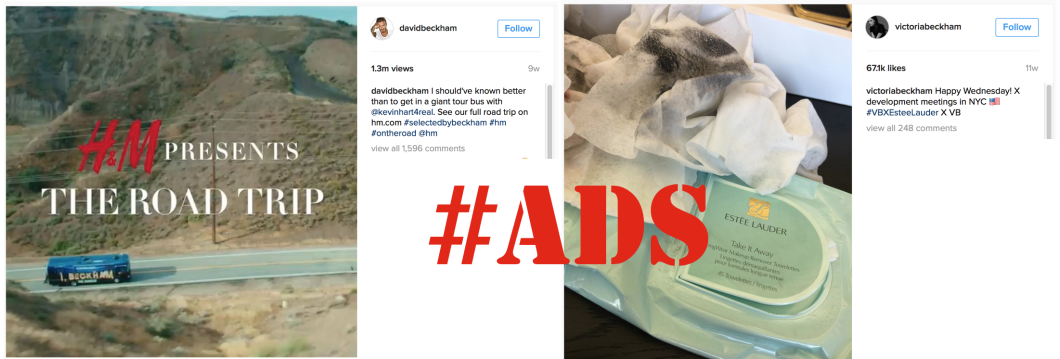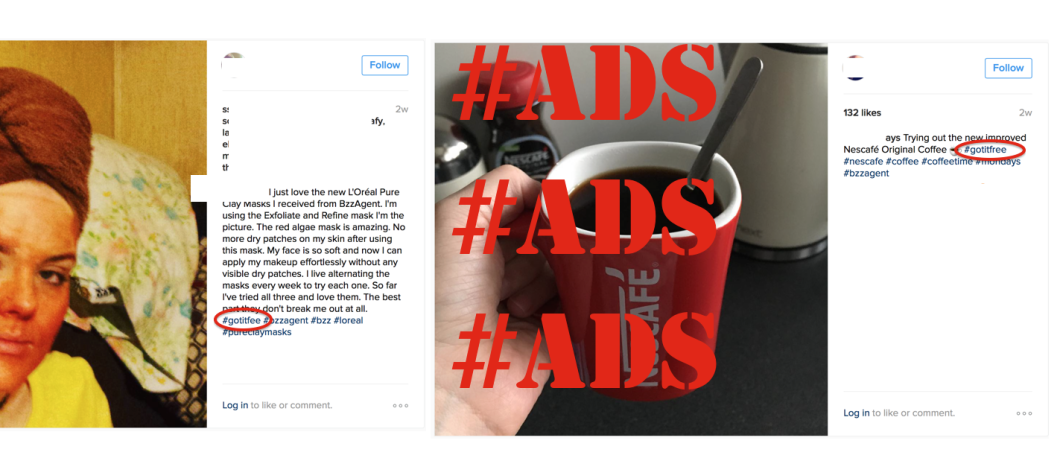Is It Time To Get Serious About Cracking Down On Stealth Instagram Ads?
If you’ve used Instagram, you’re almost certainly familiar with apparently real people touting tummy-flattening tea, an array of subscription boxes, the benefits of some multilevel marketing scheme, or the latest in fashion, beauty, and electronics. If these people are being paid to shill these products, then they have to clearly be flagged as ads. Though the Federal Trade Commission has pledged to get serious about going after advertisers who taint your Instagram feed with these stealth ads, some consumer advocates say the FTC simply isn’t doing enough.
In the last year, the FTC harshly scolded (but did not penalize) retailer Lord & Taylor for its misleading use of social media influencers to push its clothes. The store provided free clothing to these social stars — and paid them as much as $4,000 — to show off a particular new dress. Lord & Taylor had to approve the copy of these Instagram posts, but allowed them to be shared without any indication that these posts were bought and paid for.
The Lord & Taylor settlement made some minor headlines, and sources at the FTC told Consumerist that the hope was that other companies would see it as a warning to not follow Lord & Taylor’s example.
However, in a letter [PDF] to the head of the FTC’s Consumer Protection bureau, a coalition of consumer advocates points to dozens of examples of unmarked ads — many of them from A-list celebrities, including Ryan Reynolds and Vanessa Hudgens — taken from Instagram in just a span of a few weeks this fall.
“Undisclosed paid product endorsements continue to persist as a serious problem on Instagram, and the Federal Trade Commission has yet to take action to enforce its policy, which states that paid endorsements should be identified with #advertisement or #ad,” reads the letter, which called for enforcement actions against “serial offenders, marketing agencies and endorsers that continue to violate FTC policy.”
The letter includes 50 examples of what the appear to be ads but which carry no disclosures about these people getting paid or getting free stuff.
Here’s a pair of matching probably-ads from David and Victoria Beckham:

Speaking of celebrity families, here are two from the Kardashians. You’d think they would know better after the big to-do over Kim Kardashian got in trouble for doing a bad job of touting a prescription drug on social media:

In addition to celebrities (both bona fide famous people and “internet-famous” folks) getting paid, or receiving free stuff, in exchange for posting stealth ads, the advocates point to websites that “send users free products in exchange for reviews and social media posts. Once a user receives a free sample, they are encouraged to post a photo on Instagram to advertise the product to their friends. The more posts promoting a product that a user makes, the more free products they receive.”
And rather than tell users to include disclosures like “#ad” or “#advertisement,” some sites encourage users to employ less-transparent disclosures like “#GotItFree”:

Even when a marketing site does tell its users to include the proper disclosures, the advocates claim that many people simply fail to include this required information.
“Undisclosed paid product endorsements on Instagram are a consistent and dangerous problem that is not going away,” concludes the letter, signed by representatives for Public Citizen, Campaign for a Commercial-Free Childhood, and the Center for Digital Democracy. “We urge the FTC to act immediately, aggressively and comprehensively to protect consumers from this deceptive advertising practice. We request that the FTC investigate the serial non-compliance with FTC’s endorsement policy among Instagram ‘influencers’ and hold those who violate FTC policy accountable.”
Want more consumer news? Visit our parent organization, Consumer Reports, for the latest on scams, recalls, and other consumer issues.

